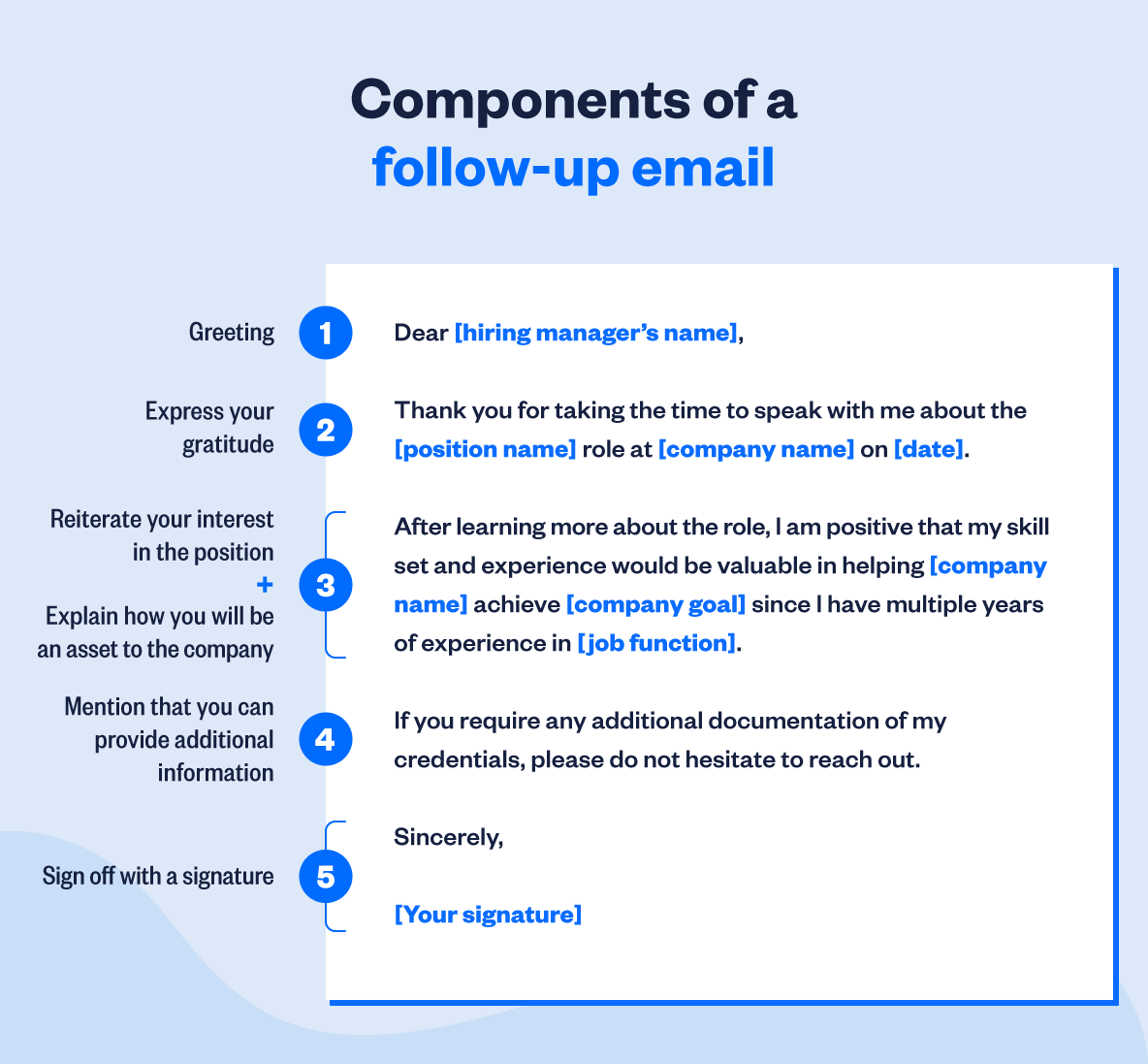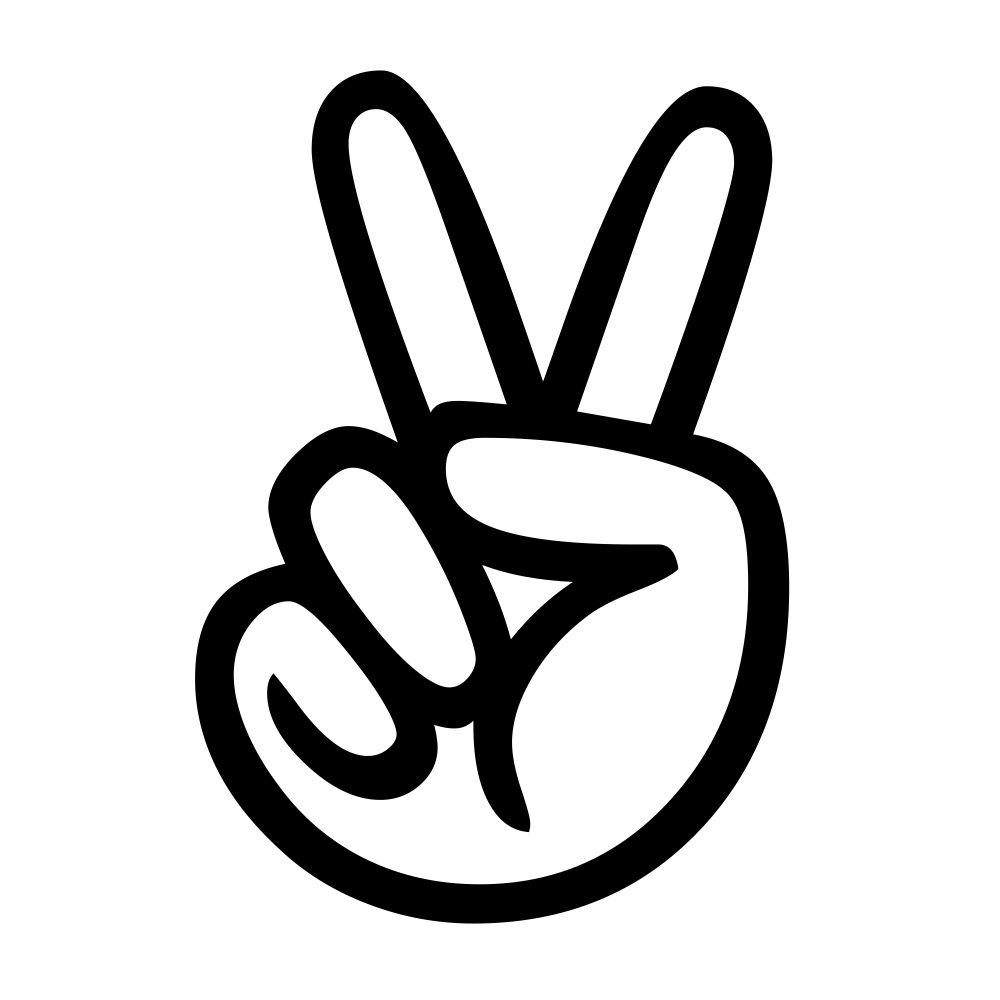How-To Standout From the Crowd When Recruiting: 6 Interview Follow-up Email Templates
Once you finish a highly anticipated job interview, you can breathe a sigh of relief. The hard part is over! That is, until you have to follow up with the hiring manager to reiterate your interest in the role.

Many people overlook this important step, but it can make or break your reputation as a job candidate. With your top tips and examples on how to write a follow-up email after an interview, you’re sure to be putting your best foot forward.
When to follow up after an interview
Following up with hiring managers the same day of the interview is an excellent way to show interest and professionalism. Job candidates should send a follow-up email within 24 hours of the interview thanking the interviewers.
Studies show that 91% of employers like to receive follow-up thank you notes but 57% of candidates don’t send them. Candidates should do this over email as opposed to a phone call, as 46% of recruiters and hiring managers prefer to be contacted via email. If you get no response after a week from the interview, you can follow up with another email.
How to write a follow-up email in 5 steps

Following up after an interview is crucial to making sure you stand out from the competition.
To help you build out your follow-up email, the following steps include the essential components you will want to include in your email to the interviewers.
1. Open with a formal greeting and include the hiring manager’s name
- Ex: Dear [hiring manager’s name],
2. Express your gratitude and reiterate your interest in the position
- Ex: Thank you for taking the time to speak with me about the [position name] role at [company name].
3. Suggest how you will be an asset to the company with your skills and how you will help the company achieve its goals
- Ex: After learning more about the role, I am positive that my skill set and experience would be valuable in helping [company name] achieve [company goal].
4. Mention that you are willing to provide additional information
- Ex: If you require any additional documentation of my credentials, please do not hesitate to reach out.
5. Include an email signature that shows your professionalism
- Ex: Thank you for your time and consideration,
Follow-up email subject line
Your subject line is just as important as the email itself. Kyle MacDonald, Director of Operations at Force by Mojio, says, “The first thing you want to do is make the subject line very clear: include both your name and an indication that it’s an interview follow-up — this allows the employer to know who the email is from and what it contains."
Recruiters and hiring managers receive a multitude of emails on a daily basis, so a straightforward and simple subject line will catch their attention and give them the information they need. Below are ten example subject lines you can use when sending your follow-up emails.
- Thank you for your time today
- [Job position] interview on [date]
- Great speaking with you today
- Follow-up regarding [job position]
- Thank you for your time, [interviewer name]
- [Job position] interview
- [Job position] interview follow-up for [candidate name] on [date]
- Following up regarding job interview
- Interview status follow-up
Follow-up email templates
Whether you’re sending the first follow-up email after the interview or you’re simply hoping to keep in touch, check out the following templates to inspire your next follow-up email.
First follow-up email after interview
Subject line: Thank you for your time, [interviewer name]
Hi [name],
Thank you so much for taking the time to speak with me about the [job position] role at [company name]. It was a pleasure meeting you [date/today/yesterday] and learning about your background and experience.
I especially enjoyed discussing [topic discussed in interview] and wanted to highlight my experience in [topic] in my previous role at [company name].
After learning more about the role, I am positive that my skill set and experience would be valuable in helping [company name] achieve [company goal].
If you require any additional documentation of my credentials, please do not hesitate to reach out.
Looking forward to hearing from you,
[Your name]
[Email address]
[Phone number]
Follow-up email checking interview status
Subject line: [Job title + position] Follow-up
Hi [name],
I hope this message finds you well! I am checking in on the [job position] role.
It was an absolute pleasure to meet you and the team at [company name].
With the information provided about the position, I am positive that I would excel in the role and make a valuable contribution to [company name].
Should you move forward with my candidacy for the role, please let me know.
Kind regards,
[Your name]
[Email address]
[Phone number]
Follow-up email after a phone interview
Subject line: Thanks for your time, [name]!
Dear [name],
Thank you for speaking with me today. I appreciated the opportunity to learn more about [company name]. I was happy to hear that you share my background in [industry] and look forward to discussing the [job title] role with you in more detail!
Please find my resume and cover letter attached to this email and if you require any additional documents, please don’t hesitate to reach out.
Sincerely,
[Your name]
[Email address]
[Phone number]
Follow-up email after a second interview
Subject line: [Job position] interview on [date]: Great speaking with you today
Dear [name],
Thank you once again for the opportunity to chat regarding the [job title] position at [company name]. This further solidified my interest in the role and I would be honored to be considered for the position.
I thoroughly enjoyed discussing [project or topic] during our time and I wanted to send along some projects I’ve worked on that mirror [company name]’s efforts in [industry]. Please let me know what you think and I hope to talk with you soon about what I can contribute to [company name].
Thanks again for your time and I look forward to hearing from you,
[Your name]
[Email address]
[Phone number]
Follow-up email after receiving another offer
Subject line: Following up regarding [job title] interview on [date]
Dear [name],
I hope you’re doing well. I’m writing to notify you of a competing job offer with a decision deadline of [date].
I would be delighted to accept an offer from [company name] as a [job title] instead of the current offer, so please let me know if you are able to reach a hiring decision before the above date.
If there is any additional information you need, please let me know!
Sincerely,
[Your name]
[Email address]
[Phone number]
Follow-up email to keep in touch
Subject line: Let’s keep in touch, [interviewer name]
Hi [name],
Hope you are doing well! I wanted to reach out and thank you once again for your time and consideration for the [job position] role at [company name].
I thoroughly enjoyed our conversation and the opportunity to learn about your career path. I would appreciate the opportunity to keep in touch and learn how you have developed and applied your [industry] expertise.
Please let me know if you have some time in the next few weeks to chat!
Thanks again,
[Your name]
[Email address]
[Phone number]
7 follow-up email tips

No matter what stage of the job interview process you are in, certain practices should be done for each follow-up email you send.
For a follow-up email that shows your communication skills and professionalism, we included these top tips to implement as you type up your message.
1. Say anything you may have not mentioned in the interview. If there is anything you forgot to mention in the interview, like a relevant project you worked on, your follow-up email is the right place to include it.
2. Keep your follow-up email as brief as possible. “I would encourage job applicants to be concise and direct in their correspondence with recruiters,” says professional recruiter and PeopleFinderFree co-founder Eden Cheng. “This ensures that your exchange remains targeted and productive.”
3. Show respect and gratitude for their time. Hiring managers interview several candidates each day, so thanking them for their time and showing respect through all digital communication is paramount.
4. Follow up within 24 hours of the first interview. The first follow-up email should be sent within 24 hours of the initial interview. After four to seven business days, you can send another follow-up email if you haven’t heard back about the job yet.
5. Have a positive tone and attitude. It’s important to note that your language should still be warm and inviting. “Don’t be blunt about it by making it seem like you are demanding something from them,” Cheng says. “We often receive so many ‘empty’ messages from people always wanting something, so if you want to stand out, the best way to go about it is to be considerate.”
6. Proofread your email before sending. As with any digital correspondence, make sure to proofread all emails to interviewers as you’re still making your first impression. Showing employers your professionalism begins in the earliest stages.
7. Include your name, the position you interviewed for, and the date or time of the interview. Recruiters get many emails on a daily basis, so reminding them of who you are can set you apart from the rest. Managing partner at Summit Search Group Matt Erhard advises candidates to remind interviewers who you are. “They’ve probably interviewed a lot of people in the last day or two, so make sure you include your name, the position you interviewed for, and the date or time of the interview,” Erhard says. “Then follow it up by thanking them for their time and saying how much you enjoyed interviewing with them.”
Why should you follow up after an interview?
Following up shows employers that you are a good communicator through each stage in the hiring process. It also shows that you are excited about the position and grateful for the opportunity. It can even increase your chances of getting a second interview or receiving an offer. Soft skills like communication, active listening, and showing respect are skills that employers look for and also make you a memorable job candidate.
FAQs
How soon after the interview should you send a thank you follow-up email?
Candidates should send a follow-up thank you email to their hiring manager or interviewer within 24 hours of the initial interview —but not too soon after the interview, because this may make employers think that you’re just checking an item off your to-do list.
Should you send thank you emails to each of the interviewers?
Yes! You should email each interviewer personally with a unique message to show your professionalism and individual connection with that interviewer.
What happens if the interviewer doesn’t respond to your thank you email?
Jobseekers can send another follow-up email a week after the initial interview.
Wrapping up: the impact of following up
Sending a follow-up email can greatly influence your likelihood of getting the job you want. The first email should serve as a thank you to the interviewers for their time and a reiteration of your interest in the role. If you don’t receive a response, don’t fret: You can send another email four to seven business days after the initial interview to reiterate your interest in the position. Regardless of whether or not you receive an offer, you’re putting your best foot forward and building a network that will aid you throughout your career. To find your next move, check out all the open positions on Wellfound.




